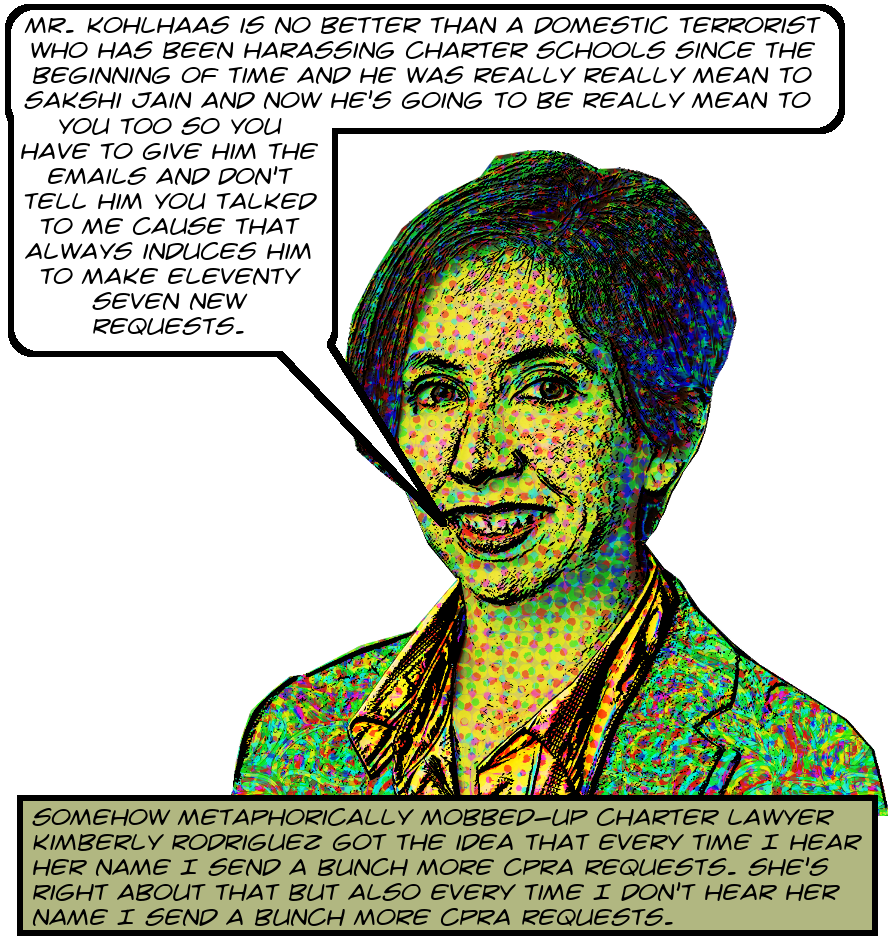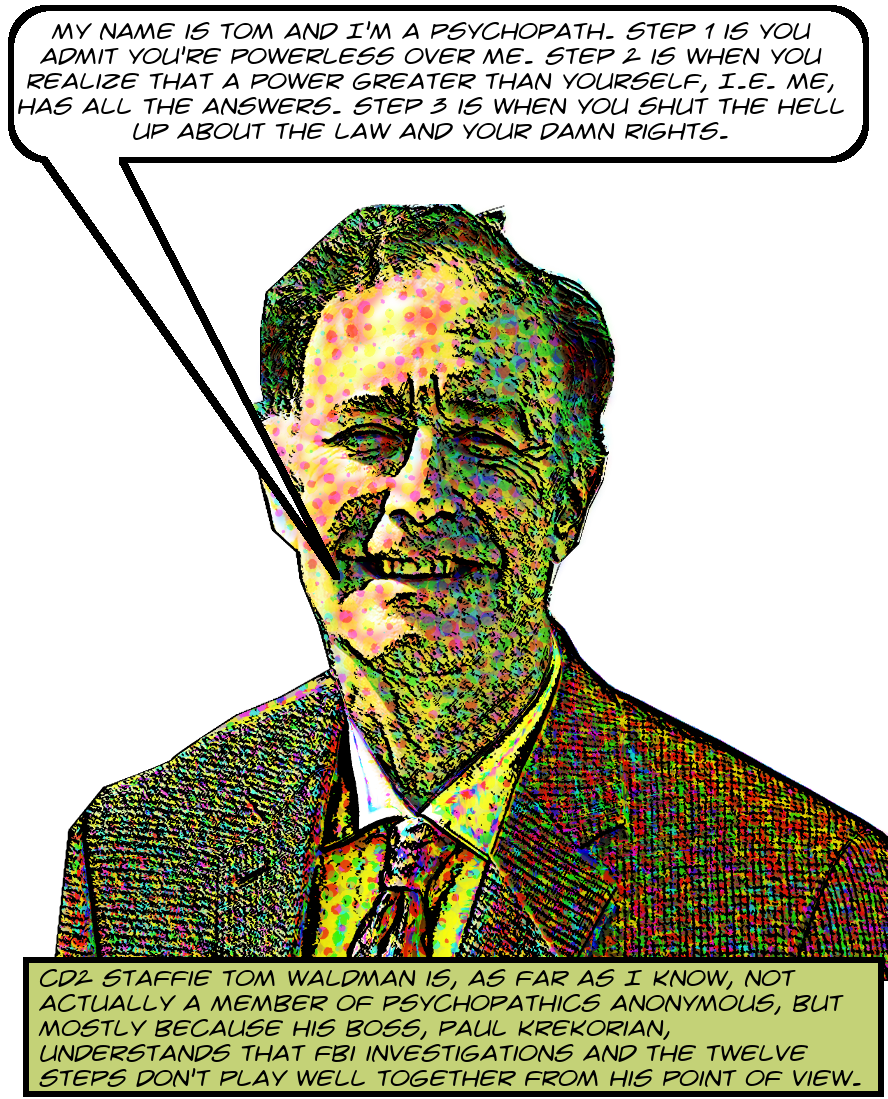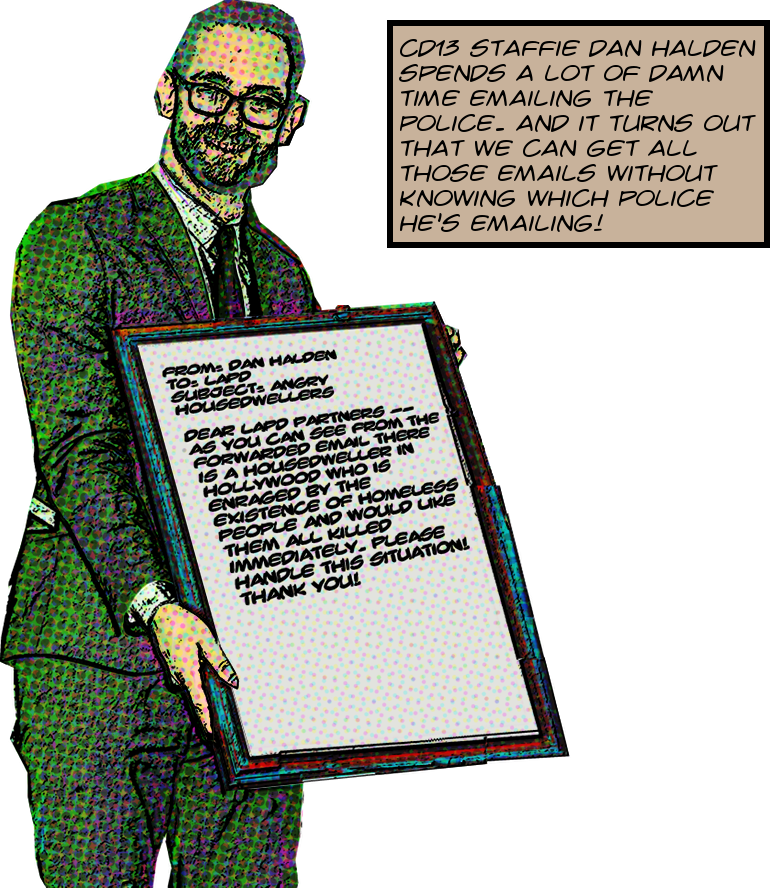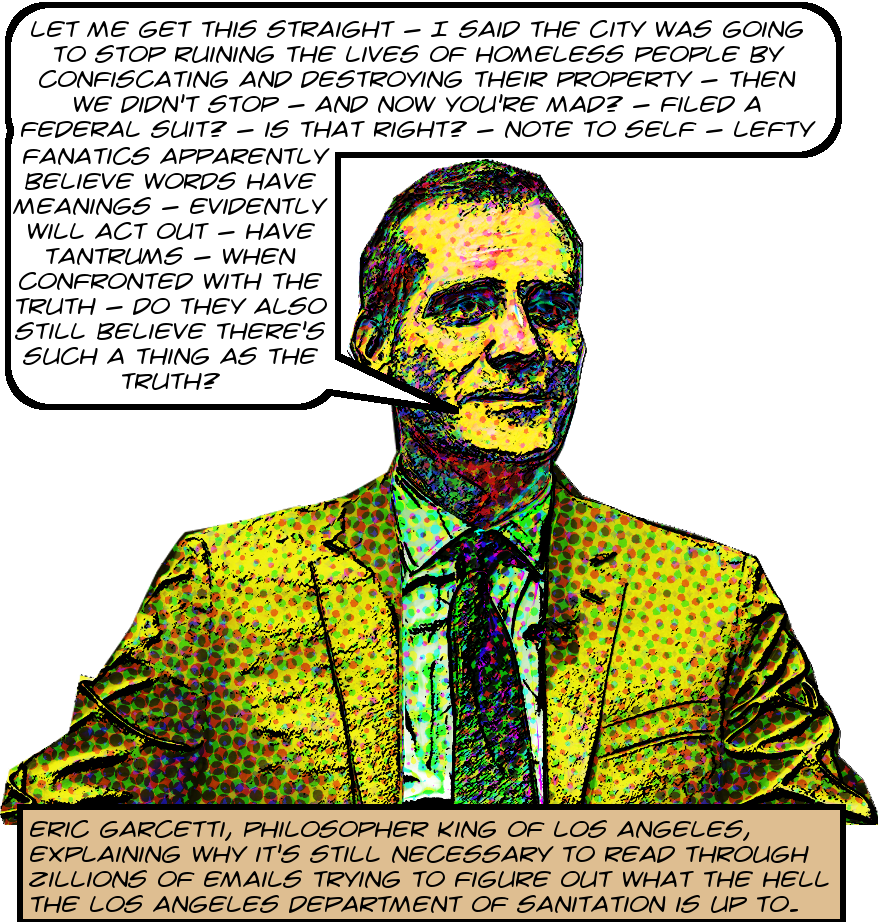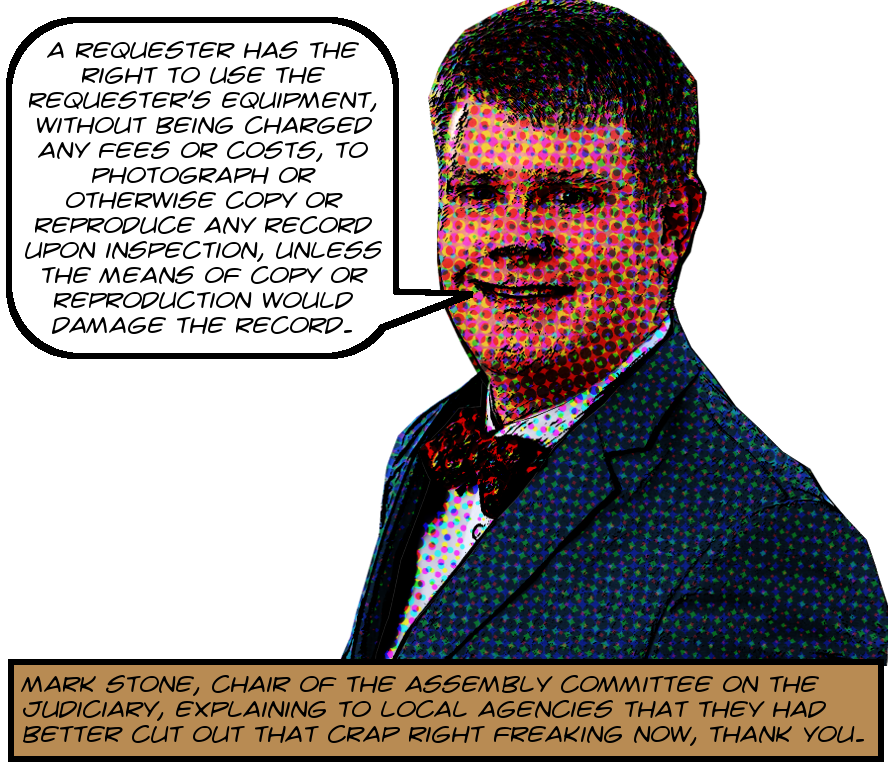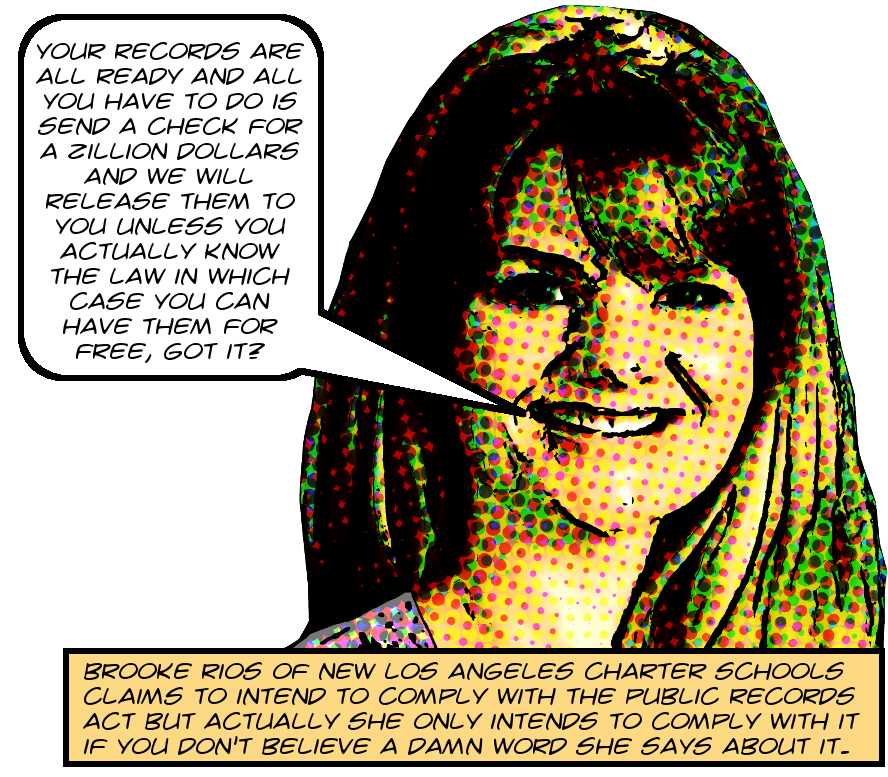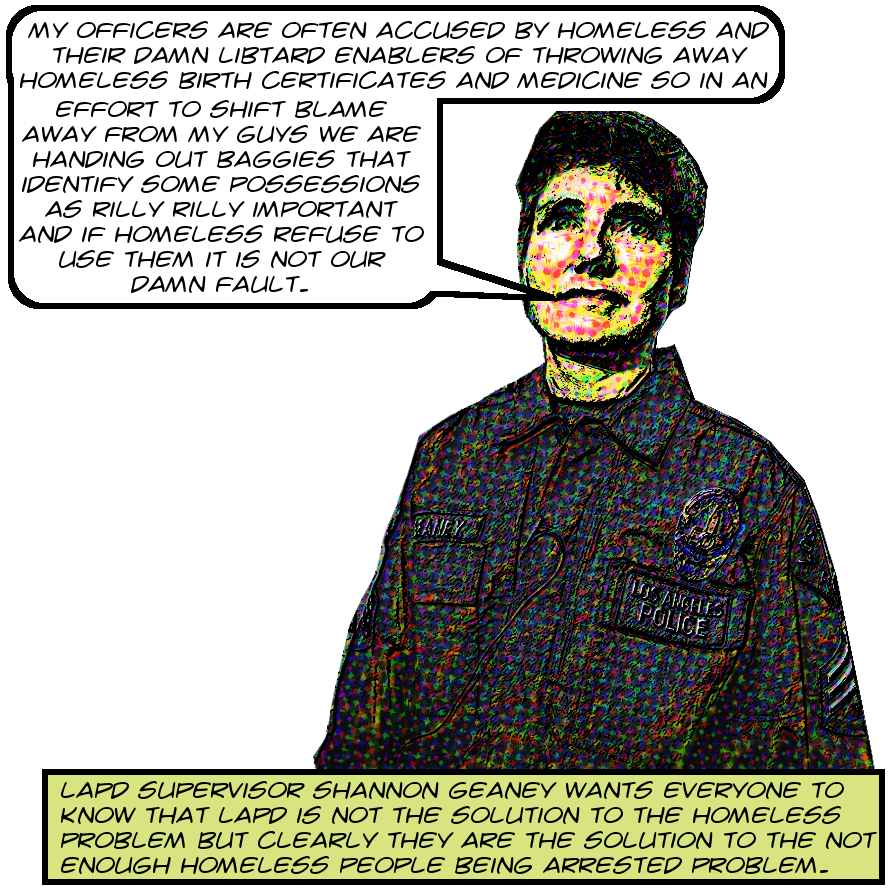 I have been spending a lot of time looking into how the City of Los Angeles organizes sweeps of homeless encampments on the most micro-level possible. The picture painted by the evidence is of an essentially complaint-driven process, with sweeps being called in mainly by Council offices, for the most part in response to constituent complaints or even to facilitate the illegal installation of hostile architecture. It’s possible, even likely, that there are other mechanisms, but I don’t yet have a clear idea of what they are.
I have been spending a lot of time looking into how the City of Los Angeles organizes sweeps of homeless encampments on the most micro-level possible. The picture painted by the evidence is of an essentially complaint-driven process, with sweeps being called in mainly by Council offices, for the most part in response to constituent complaints or even to facilitate the illegal installation of hostile architecture. It’s possible, even likely, that there are other mechanisms, but I don’t yet have a clear idea of what they are.
Ideas aren’t guiding City policy, but personalities are, raw animal desire, hatred, anger, so it’s not likely that ideas, morality talk, and so on, could change the policy. It’s extremely important therefore to understand the processes at this personal level not least to learn what is motivating City policy, what kinds of pressures City officials feel that guide their choices, and so on. Whose anger counts.
And it’s surprising whose anger does count. Like see the crazed emails from Hollywood landlord and Kanye West operative Anthony Kilhoffer and the City’s reaction to them or these genocidal freaks who want to starve homeless human beings away from their properties. And yet City officials, police included, are deferential throughout their interactions. Without understanding how this happens, why it happens, it will be harder than it already is to change the way the City deals with the homeless, and it’s already impossibly hard.
The best tool I know for understanding City politics is, of course, the California Public Records Act. So I spend a lot of time collecting and reading rage-filled hateful screeds, written by self-righteous privileged housedwellers. And to collect these, well, the CPRA requires that a request “reasonably [describe] an identifiable record or records”. Which makes it a little tricky in that probably “all rage-filled hate screeds emailed by psychopathic housedwellers” is not a reasonable description of an identifiable record. It’s too subjective, not least because one person’s psychopathic housedweller is another person’s most honored campaign donor.
So to obtain emails, then, it’s best to provide search terms. These can be domain names, email addresses, words, phrases, anything. The presence or absence of a term in an email is objective, and therefore provides a reasonable description of an identifiable record. There’s still the problem, and it’s not trivial, of coming up with appropriate search terms for this particular genre of public records.
But recently I have come pretty close to what seems to be an ideal solution. At least the phrase I’ve been using turns up a lot of interesting stuff. My current best search term is “quality of life.” Indeed, this was probably made up by a bunch of broken windows theorists as a way to explain why their theories lead them to think it’s actually OK, actually desirable, to lock people up for an entire freaking year for pissing in an alley when sane people actually don’t know why pissing in alleys is even illegal.
And this abhorrent circumlocution evidently serves its conscience-soothing function well, based on its popularity among that segment of psychopathic homeless-hating housedwellers who so desperately need their consciences soothed, or would if they had any. It’s freaking everywhere in precisely the emails I’m looking for. And just the other day I got a big stack of these quality of life emails from Mitch O’Farrell’s staff at CD13. And you can read all of them here on Archive.Org.
And there is some good stuff in here, both interesting and important. I will be writing about it from time to time, and today I’m looking at this March 30, 2018 email from LAPD officer Shannon Geaney to a panoply of what passes for community leaders in Hollywood asking for their help in coordinating a distribution “one-thousand, high density, clear, zip-closure bags that will be printed “ESSENTIAL PERSONAL PROPERTY” with a box to write the owner’s name.” There’s a transcription of this entire essential email below.
The point, as you may well have guessed immediately, is that Geany has “heard the frequent complaint that important paperwork, documents, identification cards, birth certificates, citations, or medications are frequently lost during clean-ups or incident to arrest.” Note, by the way, the absolutely stunning level of deflection here as Geaney refuses to acknowledge that the property isn’t “lost” but is rather illegally confiscated by police or other City officials and illegally destroyed or thrown away.
And it gets worse. Why is Geaney concerned about police and sanitation workers confiscating and destroying people’s medicine and paperwork? Well, she says she “understand[s] how this can cause significant delay in a client’s case management and enrollment in appropriate programs.” Maybe it’s too much even in these latter days to expect a police to be concerned about violations of people’s constitutional rights because they’re violations of constitutional rights rather than for such absolutely demeaning reasons.
And why is Geaney writing to these Hollywood thought leaders, providers of services, and, for some reason, the Hollywood Entertainment District BID? Well, because “It is [her] hope that each of you will want to distribute these bags to your clients and educate them on the importance of their role in safe guarding their property.” In short, because it helps her make the point that even though the LAPD and City Sanitation workers are the ones throwing away the property in question, and even though they’re doing it illegally, nevertheless the fact that it gets thrown away is the fault of the property owners. Because they don’t live in houses. Got it?
Good, because now finally we’re going to discuss the reason why this email is really important. It reveals an anti-homeless unit of the LAPD that I don’t know anything about yet. It’s called the Coordinated Outreach Resource Enforcement Unit, which because the City’s cute-names-for-tools-of-oppression policy seems to require it, is known as CORE. Tangentially, please read the whole email, transcribed below. There’s a lot of interesting stuff in there, very revealing of cop attitudes towards human beings forced to live on sidewalks, and I do not have time to discuss it all.
Continue reading Newly Obtained Emails From CD13 Reveal Existence Of Hitherto-Unknown-To-Me LAPD Unit Called Coordinated Outreach Resource Enforcement — AKA CORE — Dedicated To “identifying wanted suspects of active investigations living within the homeless population of Hollywood” — And Potentially Other Divisions As Well — In 2018 There Were 8 Cops On This Job In Hollywood And A Supervising Sergeant — Shannon Geaney — They Seem To Go On Sweeps And Use Outreach As A Pretext For Warrant Searches — Thus Obviously Exacerbating And Increasing Distrust Of Their Motives — Which Legit Are Not Pure — Yet Another Reason To Remove Cops From Encampment Actions Of All Types — And Actually Institute The Demands Of The Services Not Sweeps Coalition — Not To Mention Some Idiotic Victim Blaming By Geaney — Who Proposes To Stop LAPD & LA Sanitation From Throwing Away Homeless People’s Property By Giving Them More Plastic Bags — And ” educat[ing] them on the importance of their role in safe guarding their property” →
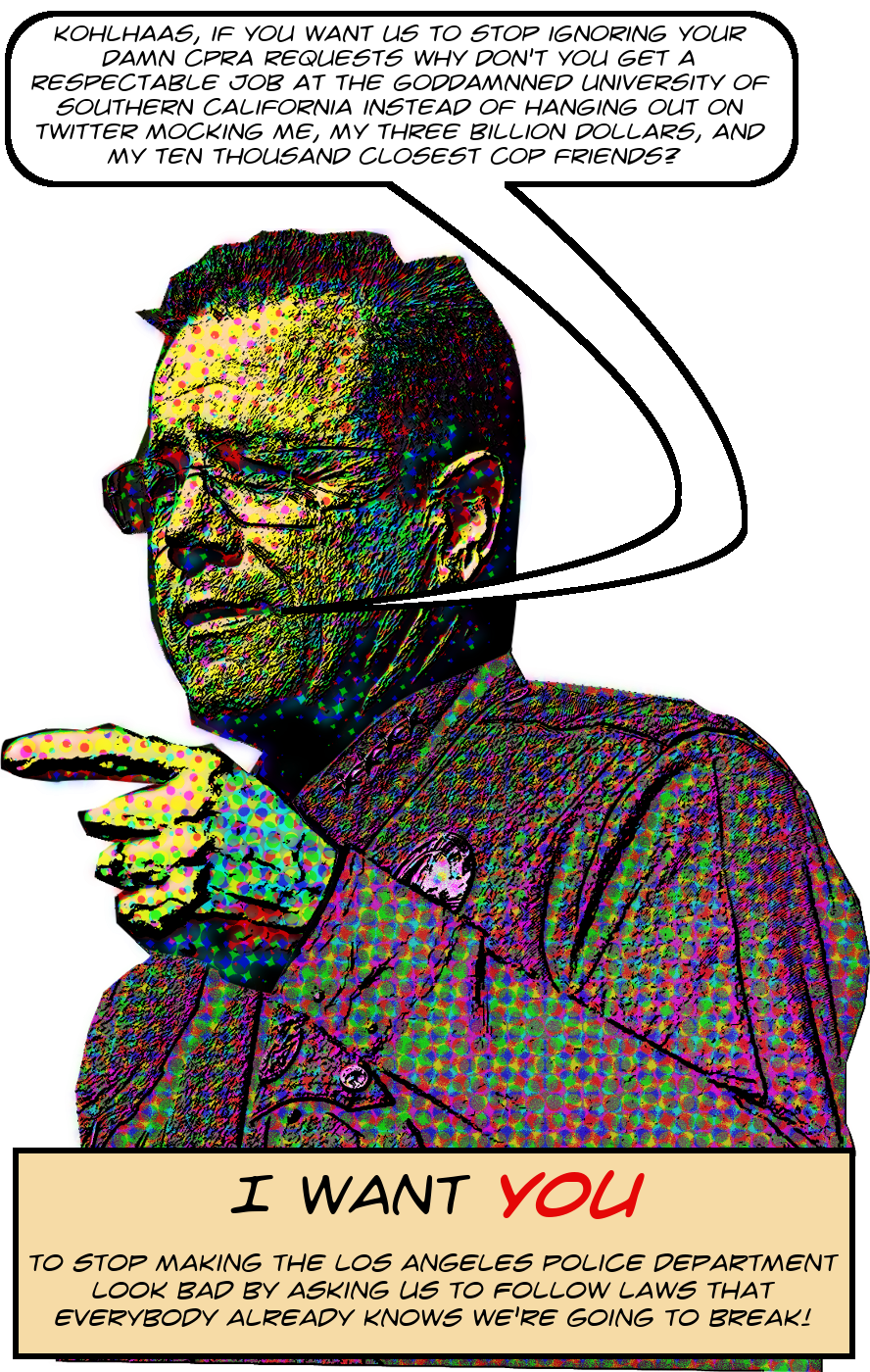 You want to know how angry the LAPD is at me? Well, they are so angry that Chief Michel Moore, who apparently reads my blog obsessively but fails to understand most of it, wrote me a really aggressive, really disrespectful letter about how freaking mean I am to everybody and they’re not going to work very hard on my requests for public records going forward.1 No, really, read the letter! Cut through all the nonsense in there and all it really says is that they’re going to continue not filling my requests and lying about the reasons. But of course they’re doing that anyway, so it’s not much of a threat.
You want to know how angry the LAPD is at me? Well, they are so angry that Chief Michel Moore, who apparently reads my blog obsessively but fails to understand most of it, wrote me a really aggressive, really disrespectful letter about how freaking mean I am to everybody and they’re not going to work very hard on my requests for public records going forward.1 No, really, read the letter! Cut through all the nonsense in there and all it really says is that they’re going to continue not filling my requests and lying about the reasons. But of course they’re doing that anyway, so it’s not much of a threat.


